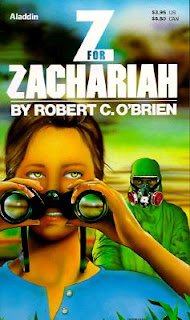Monday Musings: A Monster Calls Review
Last week I picked up a book I'd heard about but never looked into for myself: A Monster Calls. I'd recently bought a copy at our local used book store and after some rousing recommendations from friends I decided I wanted to read it sooner rather than later.
Reader beware: SPOILERS abound.
A Monster Calls has one of the best opening lines I've read in a while: "The monster shows up just after midnight. As they do."
(Apparently, this is something of a trope in stories now; follow-up a sentence about extraordinary things with the statement "as you/they do" as though it's perfectly normal. I've heard it used that way in real life, but this was the first time I encountered it in fiction.)
From there we're introduced to Conor, a 13-year-old boy with a cancer-stricken mum (this is the UK after all) and a recurring nightmare whose ending he won't even let himself think about. One night, after Conor wakens from the nightmare, a monster appears outside his bedroom window. Appearing to take shape from the old yew tree at the top of the hill, it declares, "I have had as many names as there are years to time itself! I am Herne the hunter! I am Cernunnos! I am the eternal Green Man!" (p. 36) *
Conor, however, is less than impressed. He's seen worse in his dreams (if this isn't just another nightmare brought on by the stress of his mum's illness).
But the monster isn't finished.
It's going to tell him three stories about other times it has come walking the earth. And then it expects Conor to tell a story. Conor's story. Conor's truth.
In between the monster's visits (not all of which are at night), Conor has to deal with schoolyard bullies, his ex-best-friend Lily's attempts to check up on him, his absentee father, and his decidedly un-grandmotherly grandma. To say nothing of his mother and the treatments that seem to be working less well than usual.
With sparse prose that elicits emotion, Ness weaves Conor's story in some surprisingly human directions, revealing Conor's "truth" slowly and deliberately. While some of the secondary characters lack development, readers can forgive this in light of Conor's own growth in the story.
I'll admit that when the monster said it wanted Conor's "truth," I pulled back from the story a little. I don't usually find stories that emphasize a personal truth over an objective truth worthwhile in the end, largely due to the lack of foundation such philosophies seem to have.
In this case, however, Conor's truth is a universal one: that sometimes we just want our loved ones' struggles with illness to be over, even if it means they die rather than recover. Conor feels extremely guilty for thinking (even in his dreams) that it would be better for his mother to die than to keep suffering under the chemotherapy. (His guilt pops up every time someone doesn't punish him for breaking the rules or failing to complete his responsibilities or even when the school bullies target him.)
In the end, I was deeply moved by the book's prose, its emotional resonance, and its willingness to look long and hard at some of the messy aspects of life without wallowing in the mess. I also appreciated Lily's maturity in the way she reaches out to Conor near the end. Her willingness to apologize and attempt to restore the relationship when everyone else begins to pull away made me smile even as the finale of the book broke my heart.
* And yes, I did a little jig when I read this line because I kind of like Cernunnos in fiction. I blame Susan Cooper's The Dark is Rising for starting this.
Reader beware: SPOILERS abound.
 |
| It's the movie cover, but it's gorgeous and it's the copy I read. |
A Monster Calls has one of the best opening lines I've read in a while: "The monster shows up just after midnight. As they do."
(Apparently, this is something of a trope in stories now; follow-up a sentence about extraordinary things with the statement "as you/they do" as though it's perfectly normal. I've heard it used that way in real life, but this was the first time I encountered it in fiction.)
From there we're introduced to Conor, a 13-year-old boy with a cancer-stricken mum (this is the UK after all) and a recurring nightmare whose ending he won't even let himself think about. One night, after Conor wakens from the nightmare, a monster appears outside his bedroom window. Appearing to take shape from the old yew tree at the top of the hill, it declares, "I have had as many names as there are years to time itself! I am Herne the hunter! I am Cernunnos! I am the eternal Green Man!" (p. 36) *
Conor, however, is less than impressed. He's seen worse in his dreams (if this isn't just another nightmare brought on by the stress of his mum's illness).
But the monster isn't finished.
It's going to tell him three stories about other times it has come walking the earth. And then it expects Conor to tell a story. Conor's story. Conor's truth.
In between the monster's visits (not all of which are at night), Conor has to deal with schoolyard bullies, his ex-best-friend Lily's attempts to check up on him, his absentee father, and his decidedly un-grandmotherly grandma. To say nothing of his mother and the treatments that seem to be working less well than usual.
With sparse prose that elicits emotion, Ness weaves Conor's story in some surprisingly human directions, revealing Conor's "truth" slowly and deliberately. While some of the secondary characters lack development, readers can forgive this in light of Conor's own growth in the story.
I'll admit that when the monster said it wanted Conor's "truth," I pulled back from the story a little. I don't usually find stories that emphasize a personal truth over an objective truth worthwhile in the end, largely due to the lack of foundation such philosophies seem to have.
In this case, however, Conor's truth is a universal one: that sometimes we just want our loved ones' struggles with illness to be over, even if it means they die rather than recover. Conor feels extremely guilty for thinking (even in his dreams) that it would be better for his mother to die than to keep suffering under the chemotherapy. (His guilt pops up every time someone doesn't punish him for breaking the rules or failing to complete his responsibilities or even when the school bullies target him.)
In the end, I was deeply moved by the book's prose, its emotional resonance, and its willingness to look long and hard at some of the messy aspects of life without wallowing in the mess. I also appreciated Lily's maturity in the way she reaches out to Conor near the end. Her willingness to apologize and attempt to restore the relationship when everyone else begins to pull away made me smile even as the finale of the book broke my heart.
* And yes, I did a little jig when I read this line because I kind of like Cernunnos in fiction. I blame Susan Cooper's The Dark is Rising for starting this.



Comments
Post a Comment
What do you think?